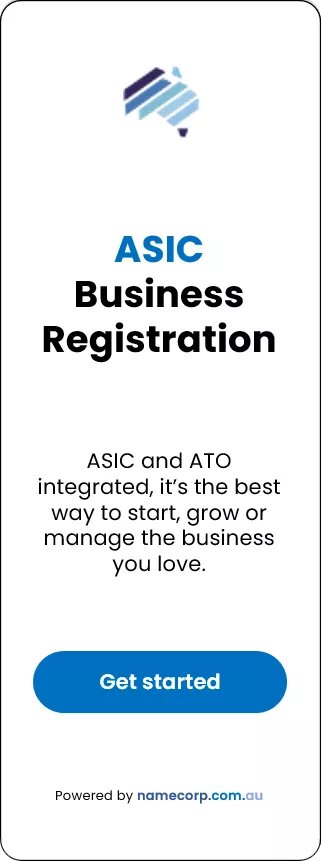Selecting the correct payment methods for your business is crucial for managing cash flow and meeting customer needs. This guide will help you understand different payment options, consider customer preferences, ensure reliability, evaluate costs, and address security and compliance issues.
Reviewing Payment Methods
Each payment method has its own features, benefits, and drawbacks. Understanding how each one works will help you choose the best options for your business.
EFTPOS Payments
EFTPOS (Electronic Funds Transfer at Point of Sale) enables direct payments from customers into your bank account using bank cards, credit cards, or debit cards. This method is widely accepted and provides immediate access to funds. However, it relies on electricity and a stable internet connection.
Credit and Debit Cards
Credit cards allow customers to make purchases on credit, while debit cards deduct the amount directly from their bank account. Both are popular due to their convenience and security features.
Setting up card payments typically involves partnering with a payment gateway and may incur service fees.
Direct Debit Payments
Direct debit allows you to collect payments directly from a customer's bank account with their authorization. This method is useful for recurring payments and ensures timely transactions.
Customers must fill out a direct debit form to authorize payments, which can be set up through your bank or a direct debit provider.
Online Payments
Online payment methods, such as PayPal, enable customers to pay for goods and services through your website. These methods offer convenience and security, with encryption to protect customer data. However, transaction fees may apply.
Cash
Cash payments are straightforward and immediate, making them ideal for low-value items or in situations where other payment methods are unreliable.
It's important to track sales with a cash register and avoid storing large amounts of cash to reduce theft risk.
Cheques
Cheques are less common due to the rise of electronic payments. They require more processing time and may incur fees. Clearance can take several days, making them less convenient for both businesses and customers.
Money Orders
Money orders are prepaid and instruct a bank or post office to pay you a specific amount. Unlike cheques, they cannot bounce due to insufficient funds. However, they can still be subject to issues like suspected fraud.
Gift Cards and Vouchers
Gift cards and vouchers can boost sales, especially during special occasions. They also promote your brand and attract new customers.
Ensure compliance with gift card laws, which vary by region, especially regarding expiration dates.
Digital Currencies
Digital currencies, like Bitcoin, are becoming more popular. They offer lower transaction fees and borderless transactions but are subject to high volatility and regulatory challenges.
While not legal tender, some businesses find accepting digital currencies beneficial.
Mobile Payments
Mobile payment methods, such as Apple Pay and Google Pay, are gaining popularity. They offer convenience for customers using smartphones and provide secure, contactless transactions.
Setting up mobile payments involves integrating with compatible payment systems.
Considering Customer Preferences
Understanding your customers' preferences is key to choosing the right payment methods. Most customers prefer electronic payments like credit and debit cards due to their convenience and security. Privacy concerns may lead some customers to prefer cash for certain transactions.
By offering a variety of payment options, you can cater to different customer needs and increase satisfaction.
Ensuring Reliability
The reliability of payment methods depends on your business location and infrastructure. EFTPOS and other electronic payment methods require stable electricity and internet connections. Consider having backup options, like cash, to ensure uninterrupted service during power or internet outages.
Regularly maintain your payment systems to prevent technical issues that could disrupt transactions.
Evaluating Costs
When choosing payment methods, consider the associated costs. EFTPOS and credit card providers often charge service fees, which can vary depending on the provider and transaction volume. Online payment methods may also have transaction fees. It's important to compare these costs and negotiate with providers to secure the best rates. Additionally, consider the time and resources needed to manage different payment methods, such as handling cash or processing cheques.
Addressing Security Measures
Security is a top priority for any business handling customer payments. Ensure that your payment systems comply with PCI DSS (Payment Card Industry Data Security Standard) to protect card transactions. Use encryption for online payments to safeguard customer data. Educate your staff and customers about best practices for preventing fraud and data breaches.
Regularly review and update your security measures to stay ahead of potential threats.
Legal and Regulatory Compliance
Adhering to legal and regulatory requirements is essential for any business. Compliance with PCI DSS standards is crucial for handling card payments. Ensure that your business follows regional regulations regarding gift cards, digital currencies, and other payment methods.
Staying informed about changes in laws and regulations will help you avoid penalties and maintain customer trust.
Industry-Specific Advice
Different industries may have unique payment needs. Retail businesses often benefit from a mix of cash, card, and mobile payments to accommodate a wide range of customers. Online businesses should prioritize secure online payment methods and consider offering digital currencies. Service-based businesses might find direct debit useful for recurring payments.
Tailoring your payment methods to your industry and business size can improve efficiency and customer satisfaction.
Emerging Trends and Technologies
The payment landscape is continuously changing. Mobile wallets and contactless payments are becoming more popular, driven by the convenience and security they offer. Digital currencies are also gaining traction, providing opportunities for businesses to reach a broader customer base.
Stay informed about emerging trends and be prepared to adapt your payment methods to keep up with technological advancements and customer expectations.
Summary and Next Steps
Choosing the right payment methods for your business involves understanding various options, considering customer preferences, ensuring reliability, evaluating costs, and addressing security and compliance issues.
By staying informed about industry-specific needs and emerging trends, you can make well-informed decisions that enhance your business operations and customer satisfaction. Regularly review and update your payment methods to keep pace with the changing landscape and maintain a competitive edge.



